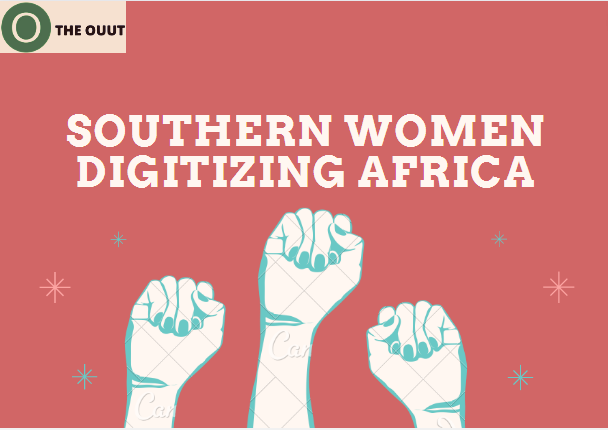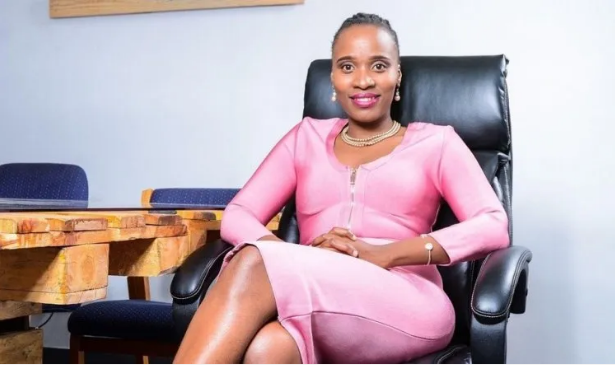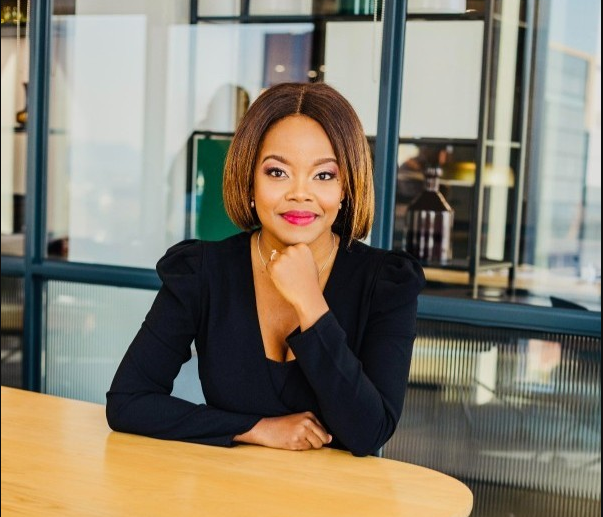Southern Women Digitizing Africa

More positive movements geared toward tech and startup acceleration are being led by women. These effective organizations show that women are capable of handling problems affecting their nations’ economic development. Thus, the gender gap must be closed, and all traces of gender inequality must be eliminated from society. For women to actively contribute to acceleration of technology, equal rights and access to knowledge and resources must become the norm.
International Women’s Day is observed because it is crucial to achieving the Sustainable Development Goals of the United Nations. Every year on March 8th, the world observes International Women’s Day to commemorate the ongoing struggle for women’s and girls’ rights.
This year’s International Women’s Day has as its subject “DigitALL: Innovation and technology for gender equality,” according to the UN. The theme is in line with the World Bank Group’s aim of identifying creative ways to assist women and girls in unleashing their human capital and becoming lights, entrepreneurs, and leaders for sustainable, resilient, and inclusive development.
Over time, southern women in Africa have been able to use technology to combat inequality, promote socio-financial inclusion, and maintain sustainability in the area. The tech industry in Africa has always been dominated by men. The Ouut highlights several Southern women who are unafraid to make their mark in the tech industry and who are questioning the norm.
Lebogang Manson (Botswana)
Cherished Kidz, a mobile, technologically advanced child transportation service founded by serial entrepreneur Lebogang Manson, aims to ensure the safety of kids for professional women in Botswana. In terms of child transportation, Cherished Kidz will be regarded as the most responsible, dependable, and safest option. The platform makes use of 7-seater vehicles that are smaller to handle time issues and makes sure that any youngsters riding in one vehicle reside and attend school in close proximity. Vehicles come with hands-free communication devices, real-time tracking, and safety features to address safety issues.
Cherished Kids placed in the top 5 of the 2020 Orange Social Enterprise Award for Women from the international category (Africa and the Middle East). The Tony Elumelu Foundation chose her to receive non-refundable seed money in 2021. Following the intense United People Global Biashara Entrepreneurship Program and business pitch competition, she was one of the recipients of the Diamond Do Good Entrepreneurship Grant (a worldwide non-profit) in July 2022.
Sethebe Manake ( Botswana)
GoSmartValue, a Botswana-based proptech business that offers information for well-informed real estate decisions, was founded by Sethebe Manake. The technological platform uses artificial intelligence to streamline the process of property valuation for customers. It connects consumers and valuers, offers rapid valuations, and gives customers access to detailed property information.

The startup is promoting the use of technology in the real estate industry. Over the years, a number of technological developments have propelled the industry’s capabilities to a new level. Manake seeks to address the issue of false information that plagues the prop-tech sector. She is setting the bar for how technology is used in the real estate industry. Gosmartvalue received $37,498 from Angel Network Botswana in a pre-seed round in August 2021.
Forget Shareka (Zimbabwe)
Forget Shareka is an accomplished businessperson, environmentalist, and agronomic engineer. She is a Chashi Foods co-founder and product developer. Chashi was formed in 2018 to provide complete and sustainable postharvest and food waste management solutions through revolutionary agro-processing prospects.
In addition to purchasing from small-scale farmers, Chashi continues to assist them by offering guidance and education in agribusiness and post-harvest management. They taught more than 100 farmers post-harvest management techniques during the COVID-19 pandemic and the period when the country was under lockdown, which helped to lessen the loss of more than 5 tons of crops.
Chashi wants to improve social conditions and alter the agricultural and food industries. Strengthening food security, promoting sustainable income generation, reducing poverty, and creating employment are its ultimate objectives for rural Zimbabwean women and youth.
Thato Schermer (South Africa)
In 2020, Thato Schermer launched Zoie Health, a mobile app for women’s health. Schermer wanted to build a platform that would make it simpler for women to obtain healthcare, including doctor visits and birth control. The app offers a subscription service for birth control. Also, ladies can use the app to schedule virtual consultations with doctors who focus on the health of women.

The app helps women select the best form of contraception, interact with skilled medical professionals, and become a part of a community. The Zoie Health app is available for download through the Google Play Store, Apple App Store, and Huawei App Gallery for subscribers. Subscribers can schedule virtual consultations with doctors, lactation consultants, dieticians, and many other specialists after installing the app and logging in. Also, subscribers have access to a network of doctors and other women whom they may consult whenever they need guidance or support.
Schermer, who was born and raised in both South Africa and the United States, has a number of business degrees under his belt, including a Masters in Management and a Masters in Digital Business from the University of Witwatersrand in South Africa, as well as a Diploma in Strategy and Leadership from the Harvard Business School of Executive Education in the United States.
Every economic sector needs to close the gender gap in Africa. Women’s economic impact on the continent can be established by empowering women’s entrepreneurship, which will fuel a global recovery that is more equitable and sustainable for everyone. There is still work to be done. Africa must realize that because digitalization is for all, the process must involve all.
